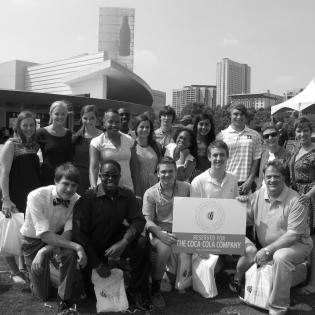In this activity participants are introduced to the history of youth organizations in the 20th Century and begin to understand the history of their own youth organization.
Filter by subjects:
Filter by grades:
Filter by audience:
Filter by issue area:
Filter by content type:
Filter by resource type:
resource search
In this activity, the group discusses what makes a strong youth council. The team determines what is important to them and their mission. They brainstorm ways to overcome barriers.
In this activity, participants reflect on their beliefs and feelings about philanthropy. This activity helps participants practice speaking up for issues they are passionate about and dialogue with others on the topic. This activity can help a group come to a consensus through speaking up about their values and interests.
Youth Activity: Participants create a collage depicting philanthropic traits and actions. This collage serves as a visual definition of philanthropy. See the handout for supplemental faith-based discussion questions.
“The future depends entirely on what each of us...
In this activity participants will gain an understanding of diversity, equity, and inclusion and construct a DEI framework for different aspects of their youth philanthropy group. Document support provided by the Michigan Community Foundation's Youth Project (MCFYP) 2020.
An important part of philanthropy is grantmaking, which is a gift of money to a nonprofit organization that is doing good things in the community. This guide defines philanthropy, the nonprofit sector, foundations, and grantmaking and then explores the purpose and parts of the grantmaking process.
This unit of lessons guides the exploration of Learning to Give's History of US Philanthropy timeline.
Explore the role of philanthropy in responding to emergencies, specifically personal and group efforts to support communities during the COVID-19 pandemic.
Settlement houses aimed to improve the lives of community members by addressing social challenges and promoting social welfare. In this lesson, we explore how they addressed the needs of the community where government efforts fell short. Many communities still have similar programs....
With similar motivations to present-day refugees, African Americans moved north in the mid-1800s to escape slavery and unsafe living conditions in the South. Detroit was an important location where Conductors on the Underground Railroad helped thousands to cross the Detroit River into Canada. In...

